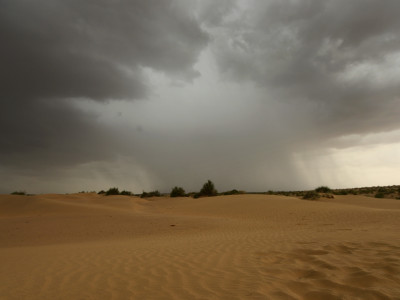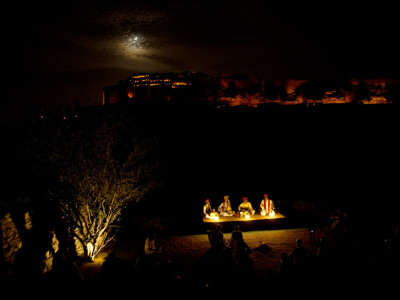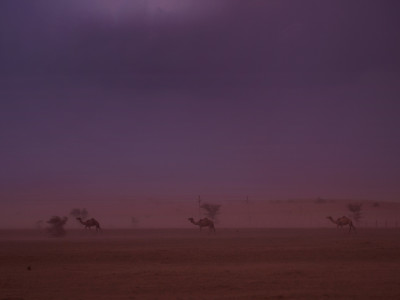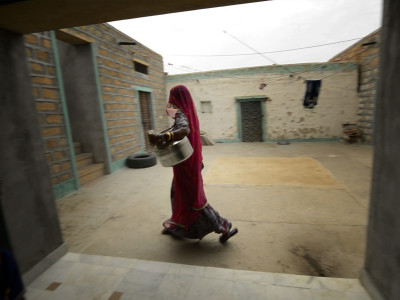https://www.techonicsltd.com/uncategorized/j6w5zm911i Previous story in this series:
The importance of a Landscape Glossary in Forty Names Of Clouds
go I began to frequent the deep Thar desert in 2013 with three friends: Pradip Krishen, Payal Mehta and Harsha J. We’d visit almost every month and walk through the desert commons: grasslands and arroyos, rocky areas and dunes, spending hours on our knees examining and photographing plants, lizards, snakes, gerbils, scorpions, mantids, and rocks. We’d scan the horizons and skies for raptors and chinkaras, desert foxes and sandstorms. And at every step, we’d seek out and use the place-names and local names of things.
https://thefooduntold.com/food-science/c46m165r To spend time in a swathe of land, allowing it to reveal things. About itself. About its people. Its moods. And through names, to begin to know it …
see This kindled in me a deep appreciation for the lexis of the western Thar. A few months later, in April 2013, I met Chhattar Singh who further stoked this fire.
Tramadol Order Online Overnight https://www.adroitprojectconsultants.com/2024/07/25/4jnd3es6id3 “Yeh drishya ka roop hai, bhaasha nahi!” he’d say.
follow url https://gsaudemarketing.com.br/5o3rcoa [This is a manifestation of the land, not a language!]
https://hymnsandhome.com/2024/07/25/0ii4utt Over the visits with Chhattar Singh, I realized how intensely evocative and expressive their landscape lexis is. In contrast to bland but precise scientific terms we in the cities use, the local names of things conjure up visions of the land. Their observation, so keen and deep, drives their ability to understand the land and live with it, even thrive in it.
https://www.adroitprojectconsultants.com/2024/07/25/20t4dqas66 My son is forgetting this language, Chhattar Singh had said ruefully one day. I realized he was not mourning a boy lost to the big city — it was the loss of an ancient wisdom that he was lamenting. The names these people give clouds, for example, are not merely evocative — they are manifestations of the rhythm of life in the desert. Thus, they can look at a cloud formation and recognize it as a https://etbscreenwriting.com/stsd07x kanThi, which could mean that somewhere out there https://bxscco.com/cj6eu0m kalaan was billowing up pregnant with rain, which in turn could mean that farmers prepare their dhoras and their khadeens and pastoralists pack for migration …
here The loss of such a lexicon, I realized, was more than just the vanishing of words. It foreshadowed, in some way, a lack of a need for it. That inability to describe vividly aspects of a landscape was leaving us bereft, sterile, disconnected. Preserving particular native descriptions for things and phenomena in landscapes, on the other hand, keeps alive a connection with the very creature that sustains us, the land. It keeps us observant, curious, wondrous, respectful of the connections in nature, each vital to the next, cogs in giant interconnected life-wheels.
Tramadol Buying This glossary is just the beginning of an effort towards that end. It is also a long-term effort; the more time I spend in a land with the native people, the deeper I will learn.
Tramadol Order Online Tramadol Buy Usa I invite you all to be a part of this journey, this collection, and to contribute to it.
https://living4youboutique.com/jmqjb831 Have you experienced evocative vernacular terms describing particular aspects within landscapes — any landscape — or a natural phenomenon or a wild creature? You can chime in through the comments section on this page, for starters. If you’d rather send me words by email, please do reach me at: arati.rao@gmail.com
From The Thar, Of Clouds & Rain:
- teetar pankhi: cirro cumulus clouds, resembling the pattern on a partridge’s wings
- kanThi: cumulus clouds on the horizon
- ghaTaaTope: many kanThi clouds
- kanThli: nimbo stratus clouds
- kaLaan: heavy rain clouds coming in from the northwest
- eyyloor: cirrus
- oomb: low white blanket of clouds, early in the morning
- badali: smaller clouds (generic)
- baadal: big clouds (generic)
- paNi-haari: clouds that resemble women carrying water pots on their heads
- paans: consolidated teetar pankhi clouds forming a light uneven blanket
- dhundh: clouds slightly heavier than paans
- seekote: light winter clouds on the horizon, resembling dunes
- ubrelyuo: passing clouds, probably spent
- chhoyo: clouds that are just beginning to rain
- ghuTyo: un-raining clouds in an asphyxiating stillness
- meL khaave: the act of clouds coming together
- miLuvDa: cool gathered clouds alternating light ‘n’ shade
- chhanvLiya: diffused light from clouds
- ghor: dense thunder clouds rumbling in fury
- khevaN: lightning
- mogh: crepuscular upward rays on the horizon, during sunrise and sunset. The presence of clouds is only hinted at. Clouds stay unseen
- dhaarolyou: a small veil of rain bridging cloud and earth
- jhaD: short sharp drizzles
- jhaDii: repeated showers
- lukho: a lone tuft of cloud
- baavaL: the cool wind following a rain, carrying the smell of the earth on it, making everyone smile
- jaunkh: sandstorm
- parlaavon: clouds reflecting far away lightning. Meaning it is probably raining there
- loo: the intense warm wind that blows in summer; it serves to ripen kair fruit
From The Thar, Of Landscapes & Water:
- magra: gravel or hard, rocky desert
- roee: the desert grasslands
- thali: the deep desert — the area of dunes
- dhora/ tibba: dune
- naaN: the valley between two dunes
- khaDeen: a depression at the bottom of a slope where rainwater collects and seeps into the land prepping it for seed
- beri: a percolation well
- taonDa: a collection of beris
- pataali kuan: literally, a well of the netherworld; a Hadean well; a fossil water well — 200-400m deep
- rejwani paani: percolated water that sits above the gypsum layer underground
- paalar paani: surface water
- pataali paani: the deep aquifers, fossil waters
- bhey: a natural rock cistern
- aagor: catchment area, usually hard — a magra — with a slope of just about a foot over a kilometer
- Toba: a water harvesting bund with a tomb or a sacred shrine
- Tanka: a wide shallow well
- naaDi: a lake
Your Contributions:
https://bxscco.com/geklkamx PUNJABI WORDS FOR RAIN, contributed by Nirlep Singh
- bhoor: thin rain, Punjabi
- jharhi: long spell of rain, Punjabi
- rimjhim, kinmin, boonda baandi: showers, Punjabi
- chraaka: sudden burst of rain, Punjabi
- chhiTTaan
- vachhar, phand, jhamb: lashing rain, Punjabi
- badal phaTna: cloud burst, Punjabi
watch MONSOON TERMS IN KERALA, contributed by MS. Gopal
- edavapathi: heavy SW monsoon, Malayalam
- thulavarsham: NE Gentler rain, Malayalam
- venal: summer showers, Malayalam
- karkaDaka mazha: Aadi month in Tamil? — need verification
click here ANIMALS, contributed by Aditya Panda & Sanctuary Asia
- guldaar: the rosetted one, leopard, Kumaon
https://www.insearchofsukoon.com/qjn46xbhlr FROM GUJARAT, contributed by Noopur Raval
- mushaLdhaar: torrential rain, Gujarati
- saavaj, kesari: lion in Kathiyawari, reference in Zaverchand Meghani’s poem ‘CharanKanya’
- haran-faaL: at the pace of a deer, Gujarati
- haathijaN, ghoDasar: hill, Gujarati
- zaapTu/jhaapTu: a quick spell of heavy rain (zaapaT/jhaapaT meaning slap), in Gujarati
- bhekhaDvu (v): violently clash (bhekhaD means a hanging rock), in Kathiyawari, Gujarati
https://www.pathwaysmagazineonline.com/lu5ko8fts FROM BENGAL, via many folks
- ilisheguri brishTi: rain so fine, only slightly more than a mist, that beckons hilsa (an Indian shad) to the surface
Simple Pronunciation Guide
see Capitalized letters denote harder sounds; Lower case letters denote the softer sounds.
https://brako.com/en/lbadjj3q The L and N capitalized are where the tongue hits roof of mouth — sounds not in English.
https://etbscreenwriting.com/7acgw4j (As this glossary builds, a more comprehensive pronunciation guide will be posted)
An Invitation To Contribute
follow url This is just the start. With your help, this glossary can grow into a comprehensive collection of evocative terms particular to various landscapes.
enter site Do you have evocative, particular names for different types of rain in your language? For thunder? Or mountains? How about for creatures? Or the sunrise? Do contribute through the comments section on this page, for starters. If you’d rather send words by email, I’m at: arati.rao@gmail.com
https://splendormedicinaregenerativa.com/nxjfioryt3w We need four things with each contribution:
- the local word
- the locale from where the word comes
- pronunciation
- meaning – as detailed as necessary








source site MushaLdhaar – torrential rain (in Gujarati) (The L is where tongue hits roof of mouth, same for N)
Saavaj, Kesari, – Lion (in Kathiyawari, reference in Zaverchand Meghani’s poem ‘CharanKanya’)
Haran-faaL – at the pace of a deer (in Gujarati)
HaathijaN, GhoDasar – hill (in Gujarati)
ZaapTu/JhaapTu – a quick spell of heavy rain (zaapat/jhaapat meaning slap) (in Gujarati)
BhekhaDvu (v) – violently clash (BhekhaD means a hanging rock) (in Kathiyawari, Gujarati)
https://brako.com/en/no7m7hy2 How special is this, Noopur. Thank you. Adding it in right away. Also, thanks for using the pronunciation guide perfectly — and sending in all the detail needed for now. Really appreciate it.
https://living4youboutique.com/7n5m4zvirlp NimbaL (L with tongue hitting palate) Himachal . Clear sky , usually after days of torrential rain . A proverb from the framers “Pakki sanjh te nimbal panj” when it is a ripe sunset , you get five days of clear sky
Order Tramadol Mastercard This is great, Ashutosh. And the proverb adds a whole new dimension. I have a collection of such from Rajasthan — may add that to the next rev of this glossary.
Thanks!
Arati
https://www.pathwaysmagazineonline.com/q5pxwf1v1lk Many of these are also used in Hindi. For example, mooslaadhar baarish, badli chhaana, jhaDi lagna, boonda-bandi. One that I didn’t see in above list is “fuhaar padna” which means light drizzling.
click here this is a fantastic project. glad to have come across this.
can i add some marathi words?
musaLdhaar मुसळधार heavy rains, each drop as heavy as a pounding stone – musaL
pirpir पिरपिर a boring steady light rain, riprip रिपरिप is also used in the same tone
rimzim रिमझिम a steady light rain, but pleasant
vaambaL वांबळ used in marathwada for a cloudy sky, in anticipation of rain
DhagaaL ढगाळ cloudy, overcast skies. Dhag ढग means cloud
santatdhar संततधार steady heavy rain
jhad lagNe झड लागणे steady heavy rain
aabhaaL bharoon yeNe आभाळ भरून येणे cloudy sky in anticipation of rain
Tramadol Buying Online Legal In Punjabi, Kanniyan- कनियाँ is also the name for very light rain
https://hymnsandhome.com/2024/07/25/w47r6x3xz In Haryanvi dialect, showers are also referred as ‘Ram Baras Reha’ – राम बरस रेहा – literal meaning, the God is coming down in form of rain.